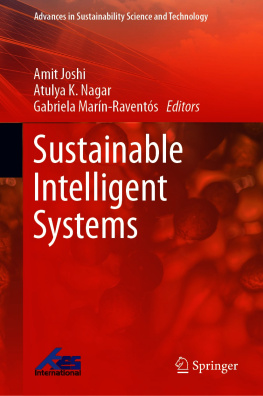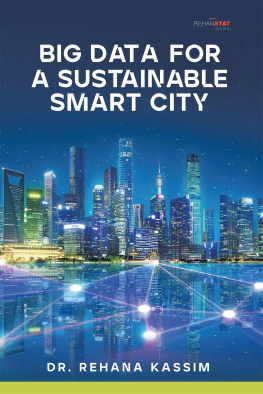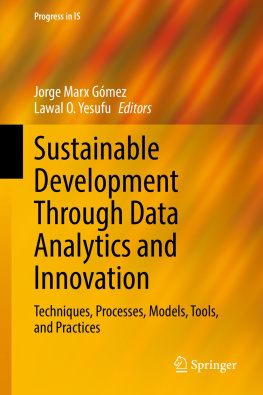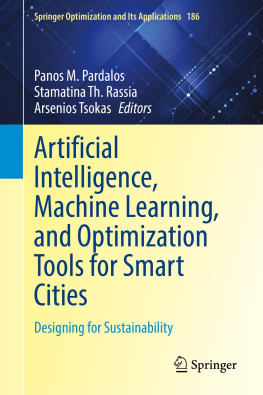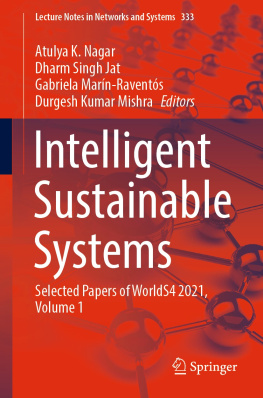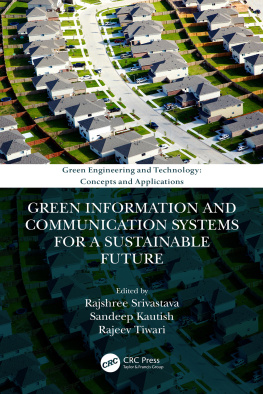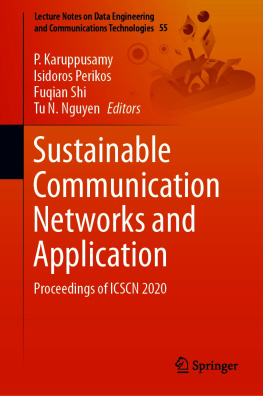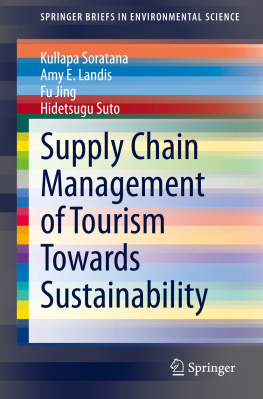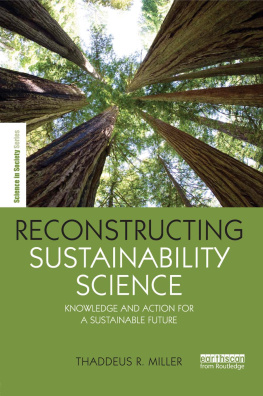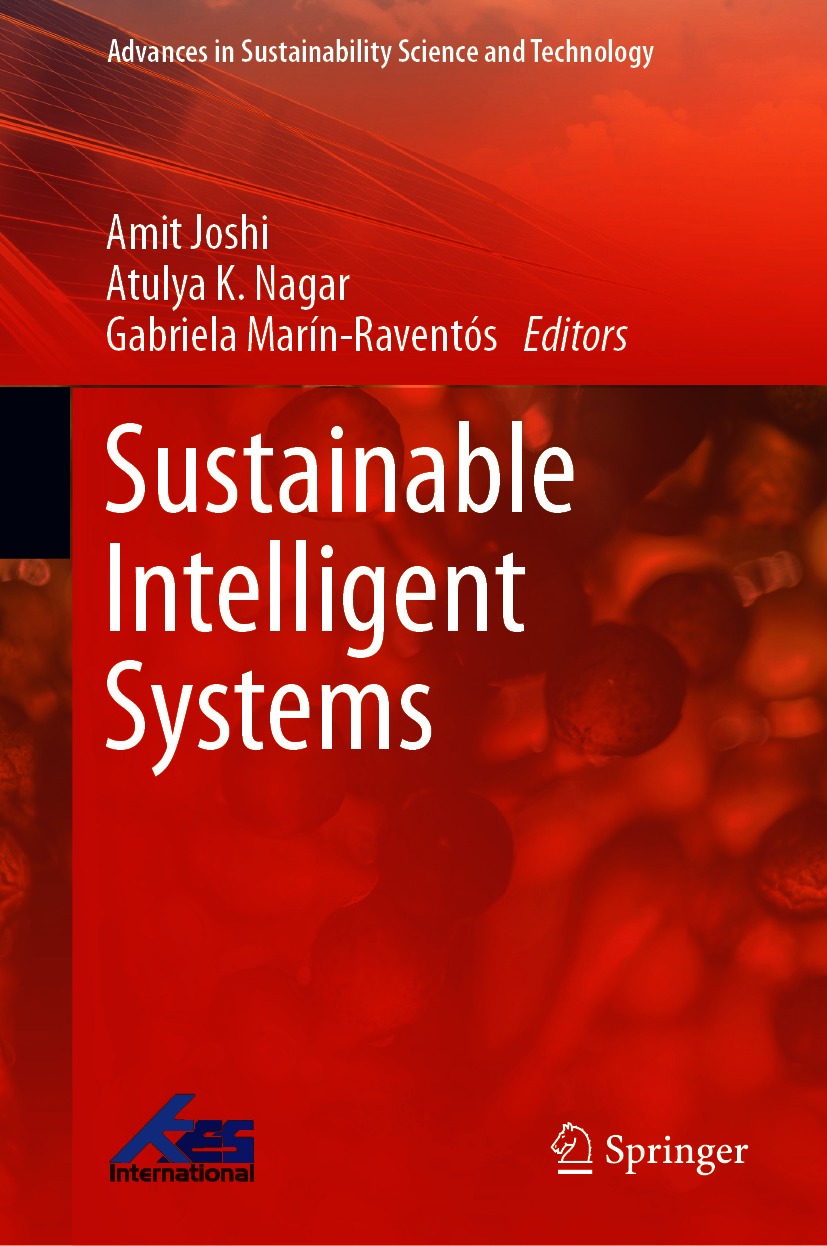Advances in Sustainability Science and Technology
Series Editors
Robert J. Howlett
Bournemouth University & KES International, Shoreham-by-sea, UK
John Littlewood
School of Art & Design, Cardiff Metropolitan University, Cardiff, UK
Lakhmi C. Jain
University of Technology Sydney, Broadway, NSW, Australia
The book series aims at bringing together valuable and novel scientific contributions that address the critical issues of renewable energy, sustainable building, sustainable manufacturing, and other sustainability science and technology topics that have an impact in this diverse and fast-changing research community in academia and industry.
The areas to be covered are
Climate change and mitigation, atmospheric carbon reduction, global warming
Sustainability science, sustainability technologies
Sustainable building technologies
Intelligent buildings
Sustainable energy generation
Combined heat and power and district heating systems
Control and optimization of renewable energy systems
Smart grids and micro grids, local energy markets
Smart cities, smart buildings, smart districts, smart countryside
Energy and environmental assessment in buildings and cities
Sustainable design, innovation and services
Sustainable manufacturing processes and technology
Sustainable manufacturing systems and enterprises
Decision support for sustainability
Micro/nanomachining, microelectromechanical machines (MEMS)
Sustainable transport, smart vehicles and smart roads
Information technology and artificial intelligence applied to sustainability
Big data and data analytics applied to sustainability
Sustainable food production, sustainable horticulture and agriculture
Sustainability of air, water and other natural resources
Sustainability policy, shaping the future, the triple bottom line, the circular economy
The areas to be covered are
Climate change and mitigation, atmospheric carbon reduction, global warming
Sustainability science, sustainability technologies
Sustainable building technologies
Intelligent buildings
Sustainable energy generation
Combined heat and power and district heating systems
Control and optimization of renewable energy systems
Smart grids and micro grids, local energy markets
Smart cities, smart buildings, smart districts, smart countryside
Energy and environmental assessment in buildings and cities
Sustainable design, innovation and services
Sustainable manufacturing processes and technology
Sustainable manufacturing systems and enterprises
Decision support for sustainability
Micro/nanomachining, microelectromechanical machines (MEMS)
Sustainable transport, smart vehicles and smart roads
Information technology and artificial intelligence applied to sustainability
Big data and data analytics applied to sustainability
Sustainable food production, sustainable horticulture and agriculture
Sustainability of air, water and other natural resources
Sustainability policy, shaping the future, the triple bottom line, the circular economy
High quality content is an essential feature for all book proposals accepted for the series. It is expected that editors of all accepted volumes will ensure that contributions are subjected to an appropriate level of reviewing process and adhere to KES quality principles.
More information about this series at http://www.springer.com/series/16477 The series will include monographs, edited volumes, and selected proceedings.
Editors
Amit Joshi
Global Knowledge Research Foundation, Ahmedabad, Gujarat, India
Atulya K. Nagar
School of Mathematics, Computer Science and Engineering, Liverpool Hope University, Liverpool, UK
Gabriela Marn-Ravents
University of Costa Rica, San Jos, Costa Rica
ISSN 2662-6829 e-ISSN 2662-6837
Advances in Sustainability Science and Technology
ISBN 978-981-33-4900-1 e-ISBN 978-981-33-4901-8
https://doi.org/10.1007/978-981-33-4901-8
The Editor(s) (if applicable) and The Author(s), under exclusive license to Springer Nature Singapore Pte Ltd. 2021
This work is subject to copyright. All rights are solely and exclusively licensed by the Publisher, whether the whole or part of the material is concerned, specifically the rights of translation, reprinting, reuse of illustrations, recitation, broadcasting, reproduction on microfilms or in any other physical way, and transmission or information storage and retrieval, electronic adaptation, computer software, or by similar or dissimilar methodology now known or hereafter developed.
The use of general descriptive names, registered names, trademarks, service marks, etc. in this publication does not imply, even in the absence of a specific statement, that such names are exempt from the relevant protective laws and regulations and therefore free for general use.
The publisher, the authors and the editors are safe to assume that the advice and information in this book are believed to be true and accurate at the date of publication. Neither the publisher nor the authors or the editors give a warranty, expressed or implied, with respect to the material contained herein or for any errors or omissions that may have been made. The publisher remains neutral with regard to jurisdictional claims in published maps and institutional affiliations.
This Springer imprint is published by the registered company Springer Nature Singapore Pte Ltd.
The registered company address is: 152 Beach Road, #21-01/04 Gateway East, Singapore 189721, Singapore
Preface
Sustainable Intelligent Systems explains and aims at giving a gist to exigency of the technological solutions with a forward move towards sustainability. The book presents issues related to ICT, intelligent systems, data science, AI, machine learning, sustainable development and overall their impacts on sustainability and provides an overview of the technologies awaiting unveiling. The book also discusses novel intelligent algorithms and their applications to move from a data-centric world to sustainable world. The book also includes the research paradigms on SDGs and societal impacts. The book provides an overview of cutting-edge techniques towards sustainability and ideas to help researchers who want to understand the challenges and opportunities of using for Smart Management Prospective for Sustainable Society. It covers wide ranges of audience from computer science, data analysts, AI technocrats and management researchers.

